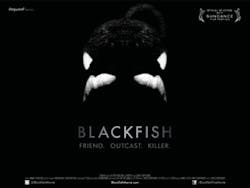Blackfish: The Role of Trust and Appearance in Safety Enforcement
For those of you following the ongoing Sea World OSHA case, Sea World has filed a complaint with the U.S. Department of Labor’s Inspector General about the compliance officer’s conduct.
Controversy heated up in January when the Orlando Sentinel published an article describing the compliance officer attending the Sundance International Film Festival with people involved with making the movie, Blackfish, a self-described documentary about the killer whale involved in the tragic death of the trainer that sparked the OSHA inspection. Photos circulated purporting to show the compliance officer wearing a “Blackfish” t-shirt and supposedly staying as a guest of individuals associated with the movie.
Not surprisingly, Sea World was concerned that these activities showed an underlying bias against the employer in the inspection and in going forward.
Lesson One – How Does It Look?
Let’s pause before we discuss additional facts. Even if the compliance officer did nothing improper and was not biased in her duties, these activities “looked bad.” There are so many lessons for the government, workers, union and employers, including the requirement that one always “think about how my actions will look.”
The Costs of a Loss of Trust
Not only does the workplace rely on trust, but so does the OSHA enforcement process.
I’m a management-side attorney and, while I vigorously advocate for my clients, I generally enjoy professional and even cooperative relationships with federal and state OSHA and their counsel. We often disagree on facts and law, but the overwhelming majority of OSHA professionals with whom I have dealt with over 30 years simply cared about worker safety. It wasn’t about ideology or politics.
Washington, D.C. political appointees are, by definition, “political,” and may have different agendas, but the people in the field almost never allow their political leaning to interfere with the process.
I share this information because, without this atmosphere of trust and professionalism, employers would demand warrants and act like, well, lawyers. The enforcement process would be overwhelmed, backlogs would soar and more time and money would be shifted to enforcement than cooperative efforts. Neither workers or employers would benefit from such a “Cold War” status.
It’s the same on my side of the table. If we don’t honor our word and act professionally, dealing with the government becomes more cumbersome.
So, let’s agree that even if this compliance office is found guilty of some or all of the allegations, she is an aberration. I do not know this compliance officer, but the area director is a fair, no-nonsense guy and the Region IV leadership is solid.
Social Media Provides So Many Ways To Destroy Your Reputation
Let’s consider Sea World’s Feb. 27, 2014, letter to the Inspector General. Counsel alleges that the compliance officer disclosed confidential documents from the investigation and mediation files. The letter claims violation of OSHA’s media policy.
Counsel cites Facebook and Twitter posts supporting Blackfish, and recommending articles and links. As examples from the letter:
“July 19, 2013 she posted 'Former Sea World trainer John (redacted) will be on Inside Edition and Bill Maher tonight. Bring it on John!! Don’t forget my sound bits . . . state it slowly, make it really strong with emotion, maybe a little tear and most importantly in that country accent. Love ya Cowboy!'; (f) on July 22, 2013, she posted the link 'Blackfish on the move in Europe' and then commented 'Wow . . . take that Sea World!!!! They’ve got to be getting nervous now;' (g) on July 29, 2013, she posted the John (redacted) video from CNN’s New Day that aired that morning and commented 'Feel like a proud mum John . . . . you Rock!' and (h) on August 1, 2013, she commented on Gabriela (redacted)’s appearance on CNN’s Jane Velez Mitchell show saying 'Kick some ass G!!'"
Don’t Just Stand There, Do Something
The allegations continue, but let’s close and draw more lessons from this process.
Social media has geometrically multiplied the opportunity to put one’s foot in their mouth, create the wrong impression, destroy a company brand or create damning evidence. And the Facebook posts, Tweets and other communications do come out at some point.
Is there anyone reading this article who will not now pull their electronic communications, confidentiality and related policies? And don’t just review the policies, continuously train and re-train employees on email and electronic communications “etiquette.”
Don’t use this case to bash OSHA, and if Sea World is correct, then we should also wish them success. Use this very public case to better train employees on professionalism and the effects of their actions and words “on and off duty.”


